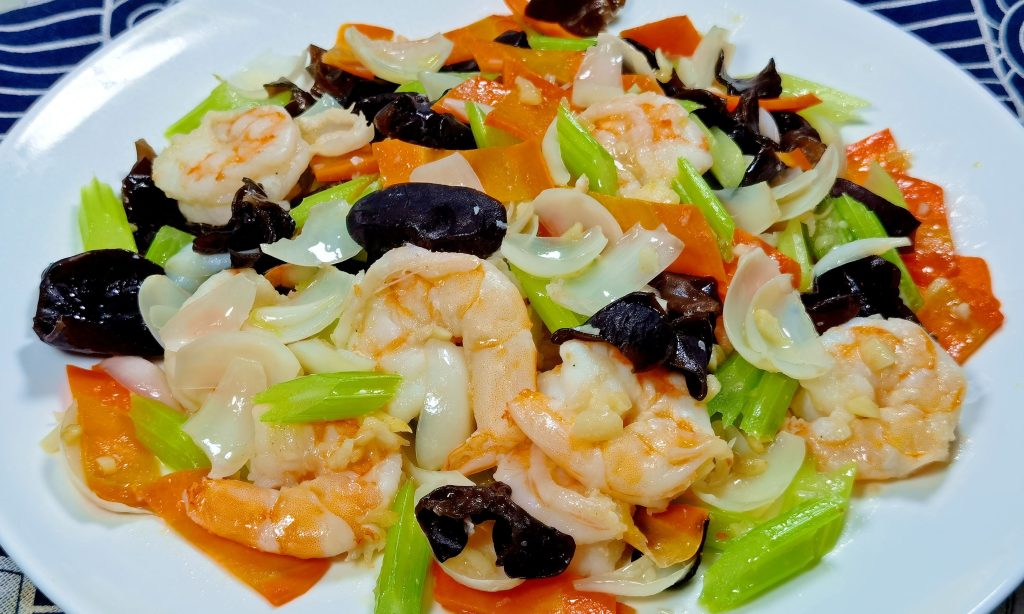The Tang Dynasty poet Li Shangyin wrote in his poem “Zhongyuan Song”: “The crimson festival drifts from the palace and the state, the Zhongyuan ceremony returns to the upper purity.” The 15th day of the seventh lunar month, known as the Zhongyuan Festival, is an important day in Chinese tradition for honoring ancestors and remembering the departed. However, this day is not only about burning paper money and releasing river lanterns; there are also many dietary customs associated with it. In fact, traditional Chinese festivals are often inseparable from food, and Zhongyuan Festival is no exception. Today, let’s take a look at what we should eat on this day and why these customs exist.
The Zhongyuan Festival, commonly known as “Qiyueban” (the Mid-Summer Half), is one of China’s four major ancestor worship festivals, alongside the New Year’s Eve, Qingming, and Chongyang festivals. On such important days, the meals should not be neglected. Just like eating a New Year’s Eve dinner, Qingming’s green dumplings, and Chongyang’s cake, Zhongyuan Festival also has its own unique dietary customs. It is a time to both remember ancestors and express hopes for peace, good fortune, and blessings.

Whether it’s the New Year’s Eve, Qingming, or Chongyang, these festivals are big occasions, blending joy and sorrow. However, Zhongyuan Festival stands out for its more solemn nature as it’s dedicated to ancestor worship. This seriousness often reflects in the food, which is typically vegetarian, symbolizing respect for the ancestors.
The saying “Don’t Eat These Three Things, or Good Fortune Won’t Come In” refers to the dietary customs during the Zhongyuan Festival. It reminds us of the importance of proper eating during this time, and how the right foods bring blessings. So, what are the three foods we should eat during the Zhongyuan Festival?
1. Duck
In many regions, particularly in the south, eating duck on Zhongyuan Festival is a tradition. The word “duck” in Chinese sounds like “ya” , which symbolizes “pressing down” misfortune and warding off bad luck. Additionally, during the transition from summer to autumn, eating duck can help balance out the body’s heat, while also providing nourishment.
Recommended Recipe: Beer Braised Duck
Ingredients: Duck, ginger slices, beer, vegetable oil, salt, soy sauce, MSG, garlic, chili
Method:
- Clean the duck, blanch it in boiling water, and then set it aside.
- Heat oil in a pan, add ginger slices, then stir-fry the duck until fragrant.
- Add salt and soy sauce, followed by garlic and chili.
- Pour in the beer, bring to a boil, and simmer until the duck is cooked. Finally, add a bit of MSG to taste.

2. Taro
In Jiujiang, there’s a custom of eating taro on Zhongyuan Festival. This time of year coincides with the harvest of taro, and the simple preparation of this vegetable is a way to honor the ancestors. Eating taro symbolizes abundance and good fortune, with the idea that “there’s always extra” in life.
Recommended Recipe: Boiled Taro
Ingredients: Fresh taro
Method:
- Clean the taro, whether bought from the supermarket or harvested directly.
- Place it in a pot with enough water to cover it, then boil or steam until tender.
- Once cooked, remove and it’s ready to eat.
3. Dumplings
In northern regions, eating dumplings is a must on Zhongyuan Festival. The shape of dumplings resembles ingots, symbolizing wealth, and their crescent shape matches the half-moon phase of the seventh month. People believe that eating dumplings on this day brings prosperity, and offering dumplings during ancestor worship expresses respect and reverence.

Recommended Recipe: Pork and Cabbage Dumplings
Ingredients: Cabbage, pork, dumpling wrappers, spring onion-ginger water, salt, egg, soy sauce
Method:
- Prepare the pork filling in a bowl, adding salt, egg, and soy sauce. Mix it well.
- Take a dumpling wrapper and fill it with the prepared stuffing, then fold it into shape.
- Boil water in a pot, drop the dumplings in, and cook until they float to the surface. Serve and enjoy.
The dietary customs of Zhongyuan Festival are quite distinctive. The most important food to eat on this day is duck, not only because it’s fitting for the occasion but also because it provides nourishment while showing respect to the ancestors. These foods are not just cultural symbols; they also carry a spiritual meaning and express people’s desires for good fortune and health.



